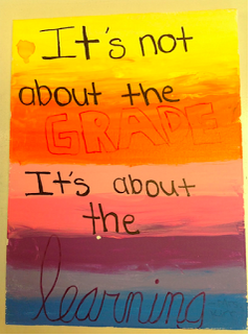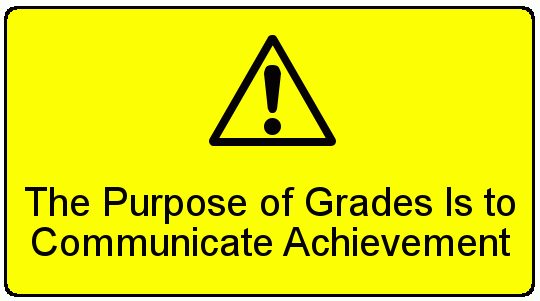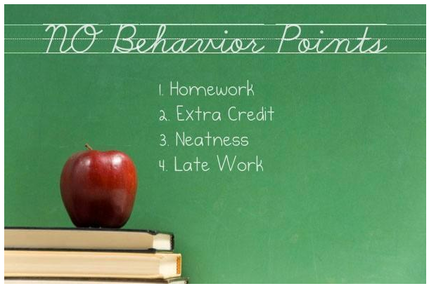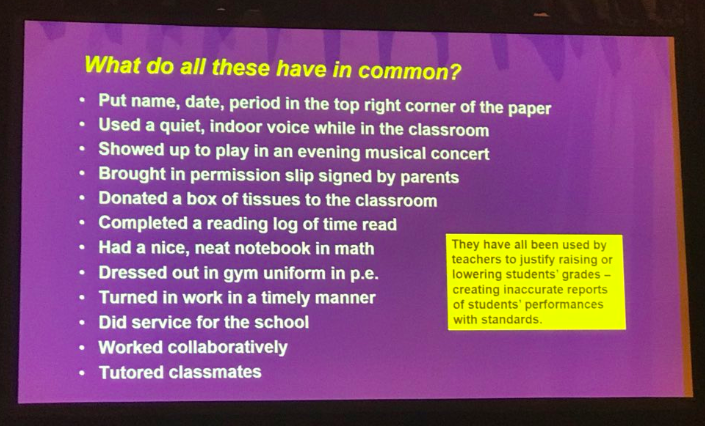What you CAN do is often simply a matter of what you WILL do.
|
Questions

What is the purpose of SCHOOL?
How long will teachers continue to give points to students who bring in boxes of tissues?
Why do I make all those comments if students just throw them in the trash?
Why should Erik be penalized for not doing any homework if he knows the material?
Why do my students have to know how old the Curtis boys (from The Outsiders) are?
Why don’t my kids revise their work?
Student questions:
What extra credit can I do?
Can I redo this if I fail?
If I revise this assignment, what will my grade be?
Why do I have to take grammar quizzes if my writing is good?
How many points will it be off if I turn it in late?
How long will teachers continue to give points to students who bring in boxes of tissues?
Why do I make all those comments if students just throw them in the trash?
Why should Erik be penalized for not doing any homework if he knows the material?
Why do my students have to know how old the Curtis boys (from The Outsiders) are?
Why don’t my kids revise their work?
Student questions:
What extra credit can I do?
Can I redo this if I fail?
If I revise this assignment, what will my grade be?
Why do I have to take grammar quizzes if my writing is good?
How many points will it be off if I turn it in late?
PLEASE do your own research and experience your own "aha" moments... |
Further Reading
Barnes, M. (2015). Assessment 3.0: Throw out your grade book and INSPIRE learning. Thousand Oaks, CA: Corwin.
Black, P. & Wiliam, D. (2001, Nov. 6) Inside the Black Box: Raising Standards Through Classroom Assessment.
Blum, S. (2020) Ungrading: Why Rating Students Undermines Learning (and What to Do Instead). WV: West Virginia University Press
(Also check out the Twitter chat and Zoom chat archives for the #ungrading book study.)
Bower, J. (2011, May 11). My de-grading philosophy Q & A [blog post]. Retrieved from for the love of learning at www.joebower.org/2011/05/my-grading-philosophy-q.html .
Feedback In Lieu of Grades LiveBinder: tinyurl.com/FeedbackBinder
Feldman, J. (2019, Feb 10) Why It's Crucial - And Really Hard - to Talk about More Equitable Grading, Mind/Shift, KQED.
Guskey, T. (2011). Five obstacles to grading reform. Educational Leadership, 69(3), 16-21.
Hattie J., & Timperly H. (2007). The power of feedback. Review of Educational Research, 77(1), 81-112.
Johnston, P. H. (2004). Choice Words: How our language affects children's learning. Portland, Me.: Stenhouse.
Kohn, Alfie. "From Degrading to De-Grading," High School Magazine, March 1999.
Mcleod, S. (2019, June 10) "How Am I Going to Make This Work Relevant" (leading to a Forbes article).
O'Connor, K. (2011). A repair Kit for Grading: 15 fixes for broken grades. Boston: Pearson.
Solarz, P. (2015): Learn Like a Pirate: Empower your students to collaborate, lead, and succeed. San Diego, CA: Dave Burgess Consulting.
Stuart, Jr., Dave (2019, June 13) - Why Are You Grading That?
Vatterott, C. (2015). Rethinking Grading: Meaningful assessment for standards-based learning. Alexandria, VA: ASCD.
Westman, L. (2017, March 15). "Standards Based Grading Made My Kid Average"
Wormeli, R. (2006). Fair Isn't Always Equal. Portland, ME: Stenhouse.
- Wormeli, R. "Late Work: A Constructive Response" (excerpt from Fair Isn't Always Equal)
Black, P. & Wiliam, D. (2001, Nov. 6) Inside the Black Box: Raising Standards Through Classroom Assessment.
Blum, S. (2020) Ungrading: Why Rating Students Undermines Learning (and What to Do Instead). WV: West Virginia University Press
(Also check out the Twitter chat and Zoom chat archives for the #ungrading book study.)
Bower, J. (2011, May 11). My de-grading philosophy Q & A [blog post]. Retrieved from for the love of learning at www.joebower.org/2011/05/my-grading-philosophy-q.html .
Feedback In Lieu of Grades LiveBinder: tinyurl.com/FeedbackBinder
Feldman, J. (2019, Feb 10) Why It's Crucial - And Really Hard - to Talk about More Equitable Grading, Mind/Shift, KQED.
Guskey, T. (2011). Five obstacles to grading reform. Educational Leadership, 69(3), 16-21.
Hattie J., & Timperly H. (2007). The power of feedback. Review of Educational Research, 77(1), 81-112.
Johnston, P. H. (2004). Choice Words: How our language affects children's learning. Portland, Me.: Stenhouse.
Kohn, Alfie. "From Degrading to De-Grading," High School Magazine, March 1999.
Mcleod, S. (2019, June 10) "How Am I Going to Make This Work Relevant" (leading to a Forbes article).
O'Connor, K. (2011). A repair Kit for Grading: 15 fixes for broken grades. Boston: Pearson.
Solarz, P. (2015): Learn Like a Pirate: Empower your students to collaborate, lead, and succeed. San Diego, CA: Dave Burgess Consulting.
Stuart, Jr., Dave (2019, June 13) - Why Are You Grading That?
Vatterott, C. (2015). Rethinking Grading: Meaningful assessment for standards-based learning. Alexandria, VA: ASCD.
Westman, L. (2017, March 15). "Standards Based Grading Made My Kid Average"
Wormeli, R. (2006). Fair Isn't Always Equal. Portland, ME: Stenhouse.
- Wormeli, R. "Late Work: A Constructive Response" (excerpt from Fair Isn't Always Equal)
Reflection & Call to Action
Check an old gradebook of yours, if you’ve still got it. If not, make up a fake one. Add in random marks (percentages, letters) for assignments you usually mark. Now average the scores for each student. Who is the “C” student, and why? What makes an “A” student in your class? Start to notice averages, and see what types of stories they tell. What would parents get out of just one letter grade at the end of each grading period?
Where are you asking for compliance instead of learning? Look through the rubrics and grades you typically use, and see where you can cut points that do not show achievement.
What, if anything, do you feel is wrong with the way you or your colleagues are grading? If you know something is wrong with your current system, how long will it be before you feel ready to make adjustments? Set a date as a goal, and put it on your to-do list.
Choose something from the “further reading” section above or look online for videos from Rick Wormeli or presentation slides from Ken O’Connor. Check it out with a colleague. Have the conversations that will help your students succeed.
Where are you asking for compliance instead of learning? Look through the rubrics and grades you typically use, and see where you can cut points that do not show achievement.
What, if anything, do you feel is wrong with the way you or your colleagues are grading? If you know something is wrong with your current system, how long will it be before you feel ready to make adjustments? Set a date as a goal, and put it on your to-do list.
Choose something from the “further reading” section above or look online for videos from Rick Wormeli or presentation slides from Ken O’Connor. Check it out with a colleague. Have the conversations that will help your students succeed.
Check Out
Another informative video here... especially starting at the 2:43 mark... -->
|
|




